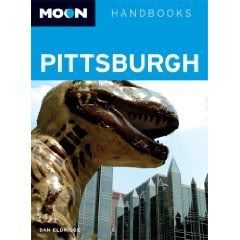For an alternate take on the world of writing, Write On! interviews Public Relations Specialist Lana Rushing. Based in Los Angeles, Rushing offers senior-level PR counsel drawing on her 14 years of communications experience. She has worked both in-house and in the PR-agency environment, so she knows what it’s like to be the client and the advisor. With a specialty in Tech PR, Rushing has launched countless products and services.
Why did you choose PR as a specialty?
I chose public relations because I enjoy the process of understanding a concept from the inside out and then making it meaningful to others.
What are the main skills a publicist must have? How does the actual writing fit into your field?
PR people must be effective strategic communicators, first and foremost. This seems obvious, but it is about more than simply being able to write well. A true PR pro must be able to bring concepts and positioning to life through written and visual mediums as well as with descriptive language in the art of the “verbal pitch” when speaking with reporters.
How important are writing skills in PR?
Writing skills are a foundational requirement in PR. You write every day in this industry whether you are developing a long-term strategic plan for a client, crafting an email pitch to a reporter, or writing a speech or a bylined article—there are so many ways PR is tied to writing.
How important is it for a writer—or publicist—to have a niche?
I am a big believer in developing an area of expertise, but also in remaining flexible in taking on assignments outside the scope of that expertise to offer new, fresh experiences and creative thinking. From a PR perspective, no matter what industry your campaign touches, the most important thing is to “dive deep” into that space before attempting to launch a product, service, or initiative. You need to know the competitive landscape, the lingo, and how best to prepare your client for the possibility of tough questions from reporters covering your news.
How did you end up with an expertise in tech pr?
I landed a dream job not long after college with a 3D animation/visual effects company. I loved telling the “how did they do that?” story, breaking down the way computer imagery helped in conveying a scene that cameras could not otherwise capture. Since, I have worked with major technology brands including HP, Walt Disney Internet Group, Symantec, Netflix, The National Association of Broadcasters, LG Mobile Phones, and others.
What do you consider your favorite campaign?
I have been lucky to work on so many compelling campaigns. If I have to pick just one, I suppose I will go with my work promoting LG Mobile Phones and their first major product placement campaign with the film Iron Man.
As part of the campaign, we set up consumer giveaways of Limited Edition LG/Iron Man phones with 18K gold plating valued at $2,000 each. We secured giveaways with top media such as People StyleWatch, Life & Style Weekly, InTouch Weekly, and Extra TV. Plus, the promotion was featured on Entertainment Tonight complete with footage of Gwyneth Paltrow and Robert Downey, Jr. interacting with one of the phones. The premiere and after-party were also fun highlights of this project!
How does PR-writing differ from other kinds of writing?
PR-writing is different than purely creative writing because it involves taking an issue and the facts around that issue and painting the most compelling picture without stretching the truth. With creative writing, “the sky is the limit,” as the old saying goes. Certainly there must be elements of creativity in PR writing, but one must be more grounded to the issue or topic at hand.
What elements need to go into a press release?
The crux of the news must be conveyed in the headline and the opening paragraph with less critical information following in the traditional “pyramid” style.
What are some of the biggest challenges writers have when self-promoting?
The toughest thing for me to do is to write about myself and I expect this might be true for other writers. That said, I think it makes sense to pull in other resources to help tell your story.
Additional advice for writers?
Read works by writers that you admire, stay on top of trends, and take workshops or classes when you need inspiration or new tools to add to your writer’s “toolbox.”
Tags: Author Q&A Debra Eckerling Lana Rushing Public Relations Rushing Public Relations Self Promotion Tech PR Write On!












Comments are closed.
Great read, thanks for sharing this!